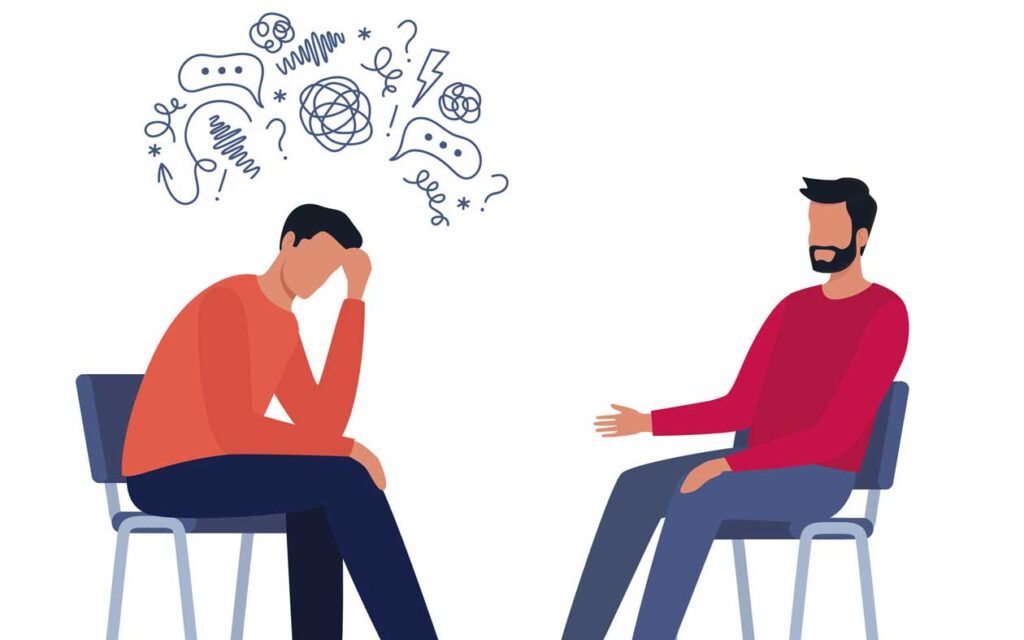It is incredibly important to us that the project is guided by lived experience at all points. At every stage, there will be an opportunity to contribute your thoughts and have them incorporated into how the research is being done.
We recognise that such sharing can be difficult and traumatic and only want individuals to take part if they are satisfied for themselves that the experience is worthwhile in terms of the possibility of it leading to useful outcomes.

You can be involved as much or as little as you like, whether you want to take part in just the focus groups, the interviews, or both. You might want to contribute in a different way, such as sharing written notes. You will be able to share your thoughts at any point, to access anything you’ve shared with us and to see how it has influenced the course of the research, to contribute to the analysis of the data and how the results are written up and shared.
Stage 1: Focus Groups
We are holding several discussion groups so that you can help us shape the questions we ask in the interviews – the second and main part of the study.
Stage 2: Interviews
After we have created a set of questions, we will interview individuals on a one-to-one basis. There will be maximum flexibility around how this is done, and we will discuss with you in advance how, where, and when you would like to be interviewed, as well as who you would like to be present from the research team and from your own network for support.
This will be an opportunity for you to share anything you want about your story and any thoughts you have on gambling and suicide. This is the main body of the study.
Stage 3: Sharing Data
With permission, we would also like to invite you to also share with us available external and personal information about yourself (or the person you are being interviewed about). These may include medical records, bank records, gambling activity data, access to online forums or chat rooms, police reports, and any other relevant information such as emails and exposure to targeted gambling marketing materials through for example, social media or computer related cookies or search engines. Before sharing such information with us, we will check to ensure that you have the necessary permissions to do so, for example, some online forums or chat rooms may have various terms of agreement pertaining to the sharing of information from those sites for research purposes. You will be supported through the whole process of collecting and sharing data by the team.
Stage 4: Data Analysis
Once we have collected a sufficiently large amount of data, we will begin analysis. This process will involve looking through data for common patterns and seeing how they fit into larger themes that explain phenomena across different interviews and cases. The process will be iterative and findings will be presented to individuals with lived experience to make sure we are on the right track with the conclusions we are drawing. We may ask again to speak to you to follow up on some things that you said in your initial interview.
Stage 5: Dissemination
Once we have findings, we will share them in different ways with different people. This will include public health leads, policymakers, mental health services, prevention organisations and other academics. We will also share our findings in a workshop with anybody who took part and other LE individuals who did not participate. You will be able to contribute to how we present the findings to different groups, as well as making sure that we have captured everything that was shared with us accurately.